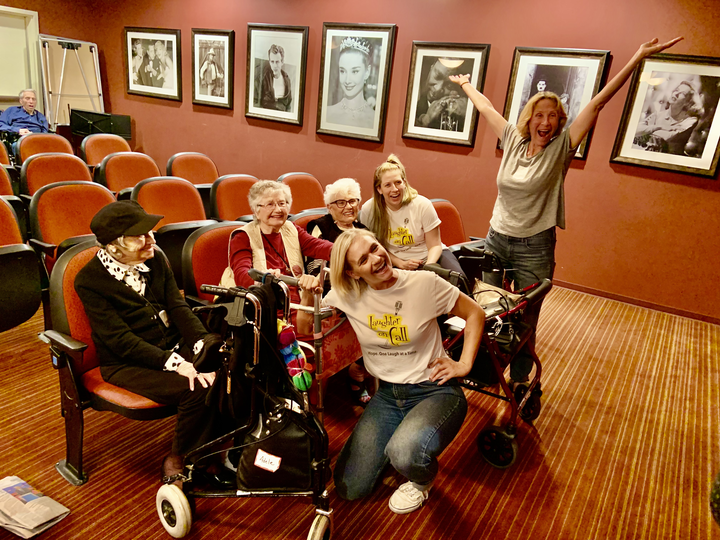
Who doesn’t love a good acronym? When they work it’s like having a gift in your pocket – with ideas inside you can actually use. One of my favorites is pronounced like the word "air." I like this play on the word, because using A.E.R. never fails to breathe life in to a conversation.
I pull out A.E.R., Acknowledge, Engage and Redirect, whenever I teach “Yes…and,” to non-Improvisors. “Yes…and,” is a simple sentence structure that is the backbone of Improvisation. When fellow improvisors throw out ideas, you're taught to respond with the words, "yes...and" to build a scene. Lots of people have discovered it’s also a great tool offstage. It keeps people at the table – sometimes figuratively, sometimes literally. A.E.R. comes from the same impulse, to foster positive, human connections.
My A.E.R. acronym derives from the same premise. My "yes," is acknowledgement. Acknowledging what the person said, although there's no rule about only using the word yes! The next step is to engage by asking a question or two, maybe sharing something about yourself. In cognitive decline, the last piece, the R, is redirection, especially if what the person wants to do is harmful. Like running down a flight of stairs or repeatedly asking when their son or daughter is coming to get them. It might sound like this,
“When is my daughter coming?”
“I don’t know. But I know you love your daughter. Can you tell me something you love about her?”
“No. I just want to know when she’s coming to get me.”
“I understand. Why don’t we go to your room and see if there is a note there from her? We could have a snack together till she gets here.”
“A snack? What kind of snack?”
“I don’t know, let’s go explore.”
It doesn’t always go this smoothly, but that’s the breakdown.
I hear you, I’d love to know more, why don’t we go to XYZ.
This recipe is effective in cognitive decline. But a recent realization of mine, is that A.E.R doesn’t only serve the carepartner community! Acknowledging and engaging in conversation is universally helpful. The only change to it is the “R." It’s often impolite to redirect someone when they're talking. In fact it can feel tone deaf, definitely not good for business.
The "R" that works in circumstances where people are lucid then is for Respond. Which is different than reacting. Reacting is often reflexive and often emotionally motivated. Responding requires listening actively and then taking a pause before speaking. Taking a beat to respond to what you have heard in any conversation is powerful. So there you have it! A.E.R. for all your conversational needs!
Acknowledge, Engage, Redirect for those in cognitive decline.
Acknowledge, Engage and Respond for everyone else!




